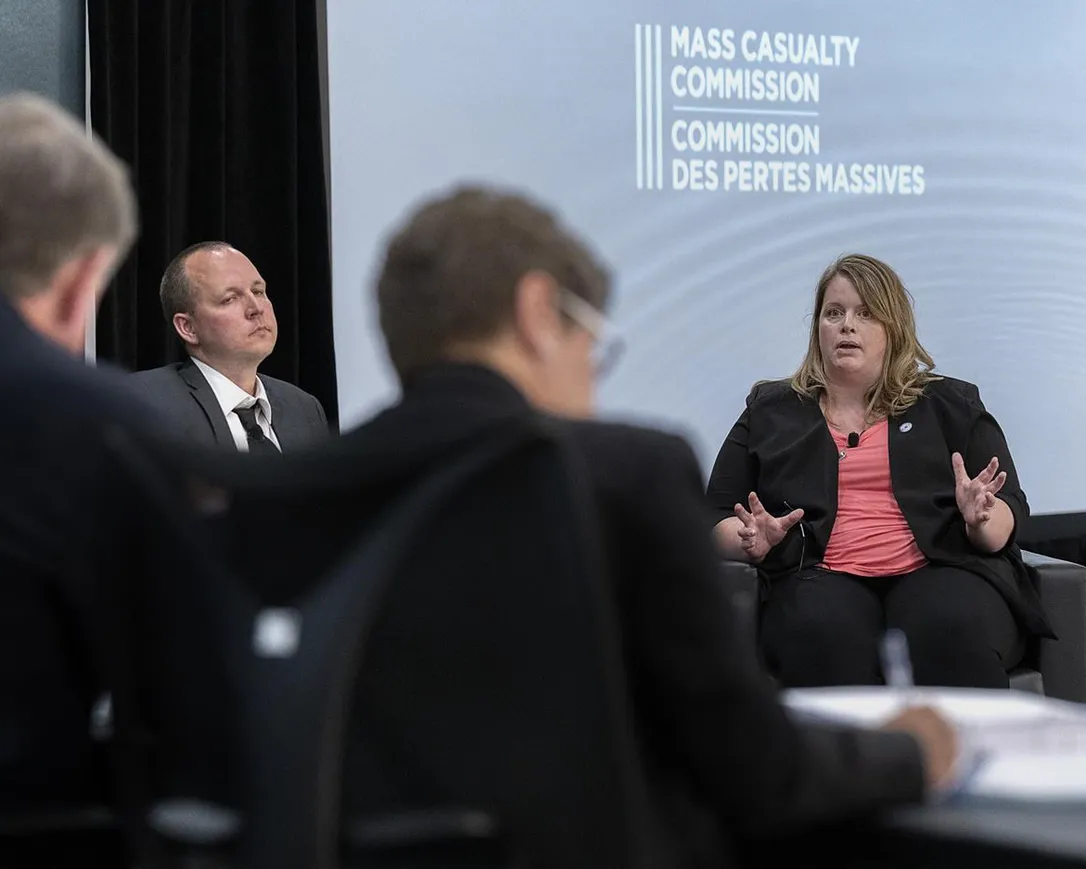June 14, 2022
-The Star
HALIFAX – Half the number of 911 call takers and dispatchers who responded to emergency calls during the 2020 Nova Scotia mass shooting are still on the job, say the supervisors for the province’s RCMP operational communications centre.
Before the two-day shooting rampage that led to the deaths of 22 people, a full-time roster of 50 employees worked at the 911 call centre, Bryan Green, acting commander of the operational communications centre, said Monday. There are 24 people remaining on staff.
Most of the job losses are “due to Portapique” — the town where the killings began — Green told the public inquiry investigating the murders. And while some of those positions are technically filled by people on sick leave, he said he didn’t know if those members will return.
“We’ve lost great operators, great employees, great people that I never thought we were going to lose and we did,” he said.
An inquiry investigator asked Green if he and his staff had been adequately supported following the killings, and he said they had been. But it’s possible, he added, that more could have been done to prevent the call centre from losing so many people. However, he said he didn’t know what that support would involve.
The operational communications centre continues to lose employees, Green said. Four staff members left the job in April 2022 after staying in the role “as long as they could,“ he said, adding that it’s been a challenge to hire people.
Kirsten Baglee, a communications centre supervisor who worked with Green during the morning shift on April 19, 2020 — the second day of the shootings — said the magnitude of the event was more than anyone on staff could have imagined.
Baglee, who initially returned to work in April 2020 then took “a few” months off, said the mass shooting was a crisis that “careers are lost on.”
The supervisors testified that call takers answered more than 80 calls in 30 minutes during the morning of April 19, 2020. Green said the centre was so busy they were forced to hang up on callers who didn’t have new information.
Green said it became clear the communications centre would only learn more information about the gunman’s whereabouts when “something else horrific happened.”
“We were always 30 seconds behind him,” he said about the shooter.
The centre was staffed by seven call takers and five dispatchers on April 19 instead of the typical four call takers and four dispatchers, Green said. Among those employees, he said, were “some of the most experienced operators,“ as well as five new hires in their twenties “who were fantastic as well.”




